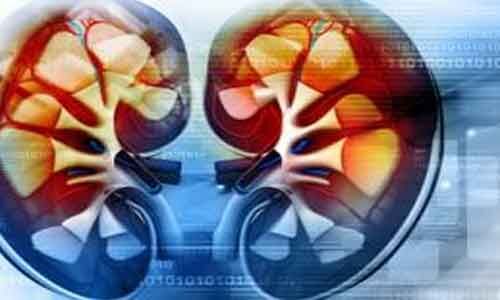- Home
- Medical news & Guidelines
- Anesthesiology
- Cardiology and CTVS
- Critical Care
- Dentistry
- Dermatology
- Diabetes and Endocrinology
- ENT
- Gastroenterology
- Medicine
- Nephrology
- Neurology
- Obstretics-Gynaecology
- Oncology
- Ophthalmology
- Orthopaedics
- Pediatrics-Neonatology
- Psychiatry
- Pulmonology
- Radiology
- Surgery
- Urology
- Laboratory Medicine
- Diet
- Nursing
- Paramedical
- Physiotherapy
- Health news
- Fact Check
- Bone Health Fact Check
- Brain Health Fact Check
- Cancer Related Fact Check
- Child Care Fact Check
- Dental and oral health fact check
- Diabetes and metabolic health fact check
- Diet and Nutrition Fact Check
- Eye and ENT Care Fact Check
- Fitness fact check
- Gut health fact check
- Heart health fact check
- Kidney health fact check
- Medical education fact check
- Men's health fact check
- Respiratory fact check
- Skin and hair care fact check
- Vaccine and Immunization fact check
- Women's health fact check
- AYUSH
- State News
- Andaman and Nicobar Islands
- Andhra Pradesh
- Arunachal Pradesh
- Assam
- Bihar
- Chandigarh
- Chattisgarh
- Dadra and Nagar Haveli
- Daman and Diu
- Delhi
- Goa
- Gujarat
- Haryana
- Himachal Pradesh
- Jammu & Kashmir
- Jharkhand
- Karnataka
- Kerala
- Ladakh
- Lakshadweep
- Madhya Pradesh
- Maharashtra
- Manipur
- Meghalaya
- Mizoram
- Nagaland
- Odisha
- Puducherry
- Punjab
- Rajasthan
- Sikkim
- Tamil Nadu
- Telangana
- Tripura
- Uttar Pradesh
- Uttrakhand
- West Bengal
- Medical Education
- Industry
Fine particle air pollution detrimental to kidney health

A new study has found that exposure to higher amounts of fine particulate matter was associated with a higher degree of albuminuria and a higher risk of developing chronic kidney disease over time.
Washington: There is no denial of the fact that breathing in air pollution can have detrimental health effects beyond the lungs, but few studies have shown how it impacts the kidneys.
Researchers conducted a study to find relationship between long-term PM2.5 exposure and kidney disease, level of albuminuria, and incident CKD. They found that people living in areas with higher levels of air pollution faced higher risks of developing kidney disease. The findings appear in an upcoming issue of CJASN.
To investigate, Matthew F. Blum, MD (Johns Hopkins University School of Medicine) and his colleagues examined information on 10,997 adults across 4 sites in the United States who were followed from 1996-1998 through 2016. The researchers estimated the monthly average levels of tiny particles of air pollution--called fine particulate matter--based on participants' home addresses. Fine particulate matter comes from a variety of sources including fossil fuel combustion, industrial processes, and natural sources.
Read Also: Researchers identify biomarker for early prediction of diabetic kidney failure
The team found that exposure to higher amounts of fine particulate matter was associated with a higher degree of albuminuria--a marker of kidney dysfunction--at the start of the study as well as a higher risk of developing chronic kidney disease over time.
"As rates of chronic kidney disease rise worldwide, it is important to understand whether and how exposure to air pollution plays a role," said Dr. Blum.
The authors noted that their findings may be especially important for parts of the world with higher air pollution, such as China and India, where fine particulate matter levels are 5 to 10 times higher than in the United States. Future studies should examine whether efforts to improve air quality yield health benefits, including reducing rates of chronic kidney disease.
For further reference please log on to:http://dx.doi.org/10.2215/CJN.08350719
Dr Kamal Kant Kohli-MBBS, DTCD- a chest specialist with more than 30 years of practice and a flair for writing clinical articles, Dr Kamal Kant Kohli joined Medical Dialogues as a Chief Editor of Medical News. Besides writing articles, as an editor, he proofreads and verifies all the medical content published on Medical Dialogues including those coming from journals, studies,medical conferences,guidelines etc. Email: drkohli@medicaldialogues.in. Contact no. 011-43720751


